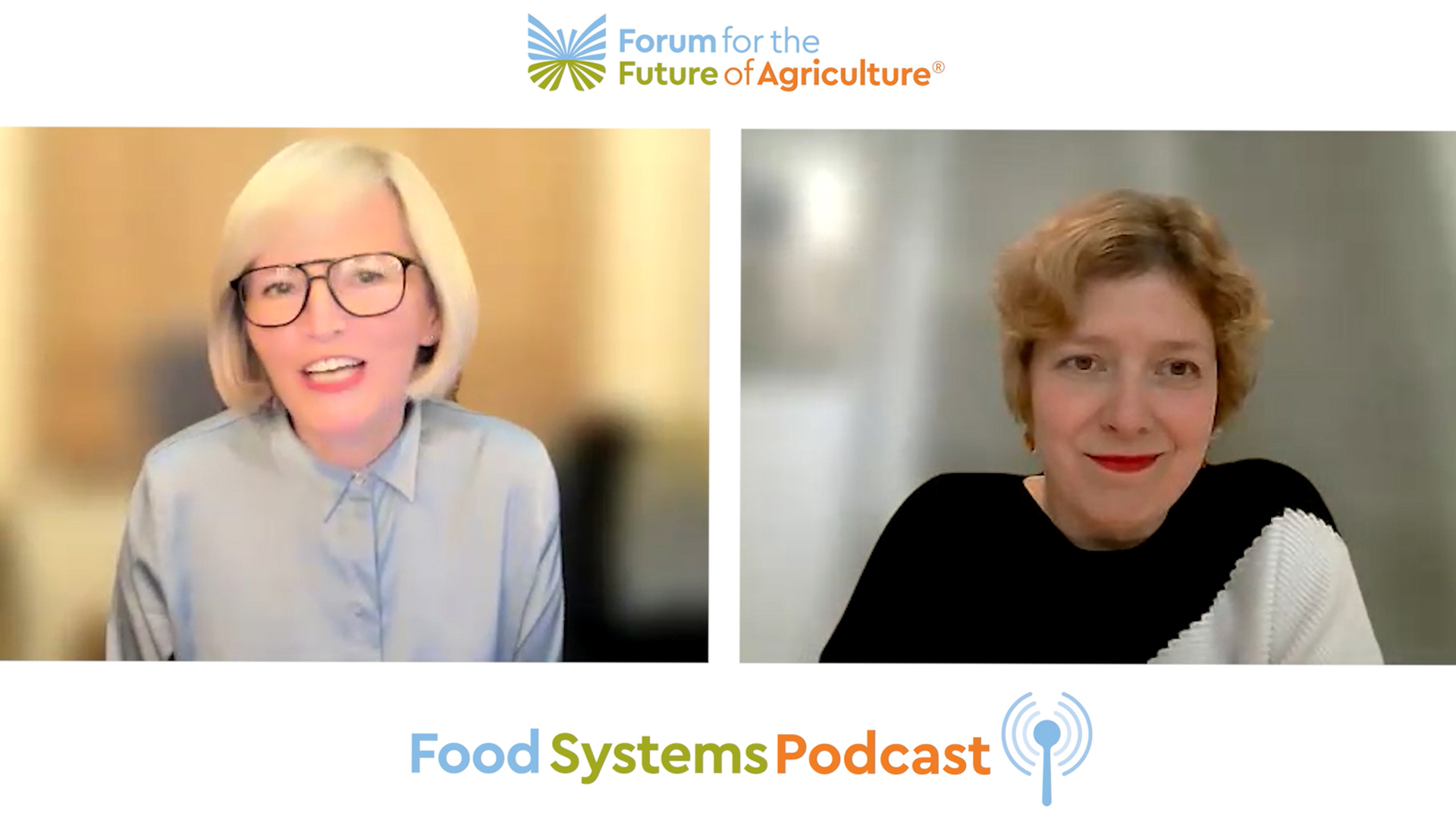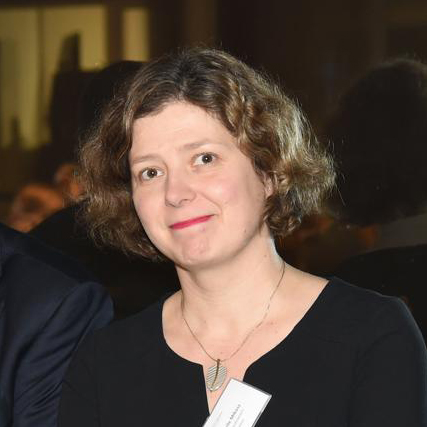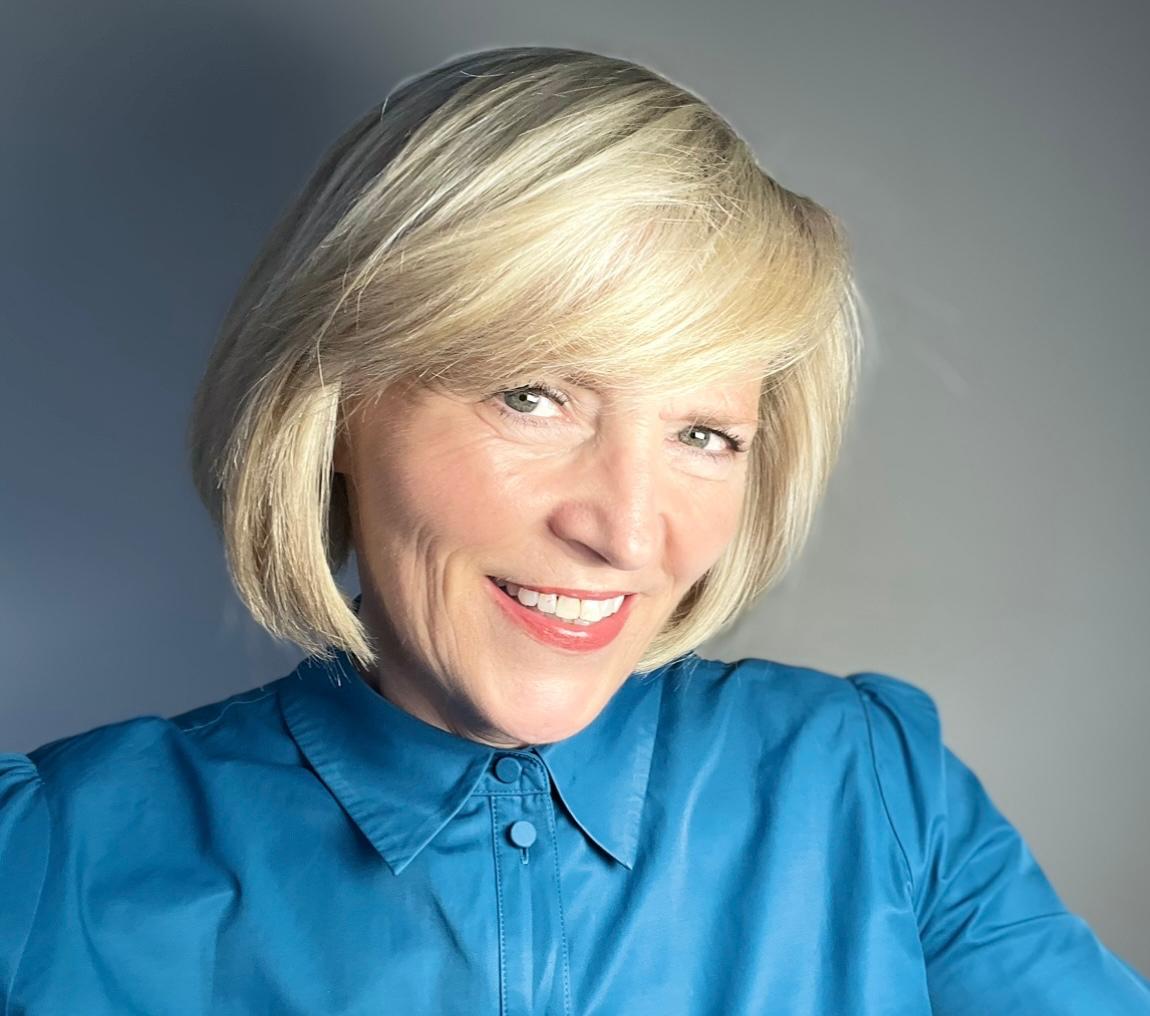Food Systems Podcast 87
Interview with Emmanuelle Mikosz
Wednesday, Oct 08, 2025
In this edition of the Food Systems Podcast, Alex Turk talks to Emmanuelle Mikosz, Director General of the Forum for the Future of Agriculture. Emma explains her new role and discusses the upcoming publications, events and other activities planned between now and the next Annual Conference in April 2026.

Here is a summary of the conversation.
Emma, you’ve been involved with the Forum for many years and you’re the newly appointed Director General, taking up the role from Mark Titterington. What will this change mean for the Forum?
It will be an evolution, not a revolution. Mark is staying on as a member of the Advisory Council, joining Geneviève Pons, Ann Tutwiler, and Tassos Haniotis. We will be using this knowledgeable network and the experience of our current and former chairmen, Janez Potočnik and Franz Fischler, to build the strategic agenda.
The Forum has diverse inputs, including founding partners, strategic partners, and supporting partners. You’re also looking for new partners. Who are the key partners?
We aim to cover the entire food value chain. The co-founders are the European Landowners’ Organization and Syngenta, who put the Forum together almost 20 years ago. Our partners include strategic partners: TNC, IUCN, NABU and Cargill, as well as the supporting partners. None of this would be possible without the great team, including the moderators of the Annual Conference and our internal team.
We know that the pace of change needs to accelerate for a sustainable food and agriculture system. You have the Market outlook workshop in Brussels on 6-7 November, where the latest OECD-FAO report will be presented. Why should people attend and what can they expect to hear? What else is planned?
People should attend because we are in the middle of discussions for the next budgets of the European Union and the Common Agriculture Policy. Attendees will get a global markets overview and cover implications linked to arable crops, livestock, environmental footprint, and policy. If you’d like to know what’s foreseen for the next 10 years’ time, which are crucial in all the debates, this is the moment to come to join us.
As well as the OECD-FAO report, we’ll present other reports. We want to bring additional knowledge to the economic discussions, showing the complexities and trade-offs needed for the transition to sustainable and resilient food systems. We have an amazing panel of experts – including representatives from the European Parliament, Committee of the Regions, and the European Commission DGs.
The Forum has increased its scope with regular events: What can we expect in the coming weeks and months?
We promise to keep the network busy with additional events and reports. Aside from the Annual Conference in April 2026, we are planning a regional event in Ireland in June, linking our activities to the EU Council Presidency. We will also be presenting our new report on Financing the Transition, which is the result of six months of internal work with partners on concrete solutions.
How wide is the scope of your topics?
We have a wide range of different partners and a diverse network, so it can be areas close to the food value chain, farmers, the budgets needed, the collaboration between public and private sectors. So innovation, and also new topics like nature credits and benchmarking.
You are also working with the Global Forum for Farm Policy and Innovation (GFFPI). Can you tell us about that?
This collaboration is very important because while the Forum’s expertise lies within Europe, it’s crucial to stay in touch with like-minded organizations globally. We are working with partners from the US, Australia, and Canada. We will be publishing a report next week on ideas for innovation and potential collaboration, and we are organizing a workshop in Washington, D.C. on 7 October. It’s necessary to be a little bit… provocative, but also to try to find common ground. We don’t all need to agree on everything – the point is to try to find common solutions.
What can you share about the plans for the next Annual Conference?
Mark your calendars for 14 April, 2026. There will be discussions around the CAP, but we will also be thinking out of the box to bring something that speaks about the future of agriculture and environment. We will announce more details in the coming weeks and months.
Finally, what does your role with the Forum mean to you, and what drives you personally?
What drives me is the amazing capacity of the people, experts, and network of the Forum and the opportunity to work together. Meeting people from farming, environmental, and research communities who are sharing their life stories and have the energy to find new solutions, even when things are difficult, is what gives me positive energy. Given the current times and the difficult nature of agriculture and environment topics, the need to find common ground and collaboration is what drives me on a daily basis.

Emmanuelle Mikosz
In January 2022 Emmanuelle Mikosz took the role of 'Forum for the Future of Agriculture' Programme Director and in...see more

Alex Turk
Alex Turk has worked in television presenting live, recorded and Business TV from ITN, Channel 4 News...see more
